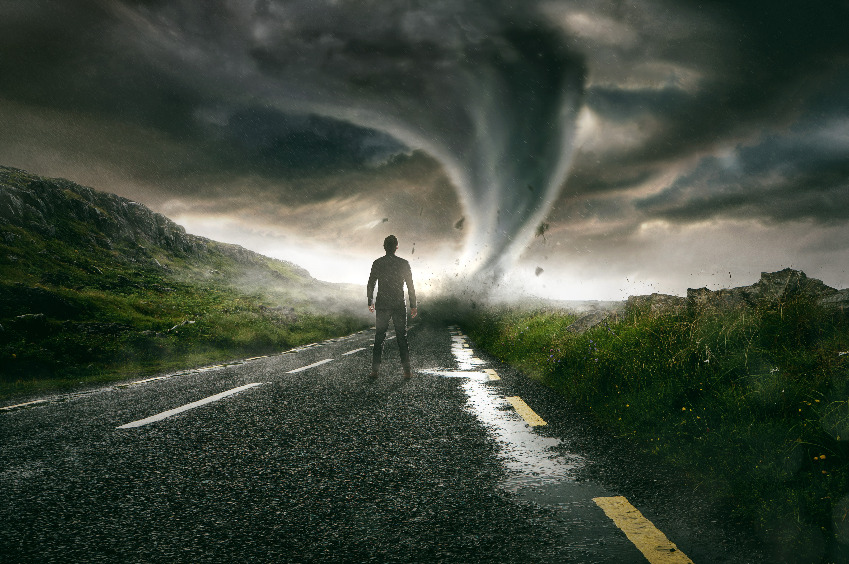BY JENNIFER SCHUBERT-AKIN:
Americans can be forgiven if they missed the Thanksgiving week news that we are now on the hook to pay climate reparations. At the recent conclusion of the United Nations climate change confab known as COP 27, attendees, including the U.S. delegation led by John Kerry, agreed to create a “climate justice fund.”
The fund will supposedly offset the “loss and damage” of natural disasters caused by climate change in developing countries through tax dollars from developed countries that are allegedly responsible because they’ve emitted more carbon.
The climate justice fund has been a goal of climate bureaucrats for decades. “It’s a historic moment,” said Nabeel Munir, a Pakistani diplomat and head negotiator for the G77 developing countries. “[It’s the] culmination of 30 years of work and beginning of a new chapter in pursuit of climate justice.”
Yet this new international tax scheme is also the latest chapter in the same old story of Americans sacrificing their living standards to the climate change altar. The perspectives of ordinary people who depend on cheap, reliable energy must urgently be added to climate policy conversation before any further sacrifices are made.
The creation of this fund comes at the worst possible time for Americans who are already facing historic electricity and gasoline costs as a result of the Biden administration’s opposition to traditional energy. Energy Information Administration data indicates that American households face heating bills twice as high as they paid two winters ago.
And current energy policy will put further pressure on these prices. Last month, the Biden administration announced new regulations on methane gas. It has approved the fewest federal oil and gas leases since the Truman administration.
The situation is even worse in Europe, where The Economist estimates an additional 147,000 people will die this winter due to artificially high energy prices that prevent people from adequately heating their homes. One high-level German politician is recommending residents forgo bathing in favor of a washcloth and only heat one room in the house to conserve energy.
Such drastic measures are supposedly needed to stave off the worst effects of climate change. According to U.N. Secretary-General António Guterres, the planet is “on a highway to climate hell with our foot on the accelerator.” The term “global warming” evolved into “climate change” and then to the “climate crisis.” Now it’s “climate hell” — fire and brimstone.
But as leading environmentalist Bjorn Lomborg points out, the U.N. has repeatedly predicted climate change armageddon for the last 50 years. In one representative projection, the U.N. warned in 1989 that unless global warming is resolved in ten years, we face “[g]lobal disaster, nations wiped off the face of the earth, crop failures.”
Ongoing Chicken Little prophecies bring to mind the Shakespeare line about the lady who doth protest too much. Could the U.N.’s climate protests betray an ulterior — or, at least, alternative — motive to advance its global power or further the Marxist vision held by many of its top officials? At the very least, its claims should be treated with an extreme skepticism that’s missing from today’s mainstream media and culture.
Here are a few facts that must be part of any debate about energy and climate policy: 1) U.S. per-capita carbon dioxide emissions have fallen by nearly one-third since 2005 thanks to the free-market fracking revolution; 2) the U.S. only emits 13% of global emissions, so nothing it does will meaningfully affect temperature without regulations on China, which emits way more than all the developed nations combined; 3) developing economies need far more cheap and reliable energy to survive and thrive; and 4) humans can adapt to the slightly warmer temperatures predicted by the scientific community.
When such reasonable perspectives are aired, minds change. Steamboat Institute recently hosted three energy and climate policy debates on college campuses featuring Steven Koonin, former undersecretary of energy in the Obama administration, facing off against three mainstream climate experts. Audience polling revealed that significantly fewer attendees supported the resolution to rapidly reduce greenhouse gas emissions after hearing Koonin’s measured analysis than before the debates began.
Among Koonin’s points: there is little to no indication that natural disasters have become more frequent or intense. In fact, natural disasters have become less damaging as the globe has become richer and developed ways to mitigate them. In other words, the premise behind the climate reparations fund is fatally flawed. Such rationality must replace dogma to provide ballast to the climate change debate and protect American prosperity.
Jennifer Schubert-Akin is the CEO, Chairman, and Co-founder of Steamboat Institute.
This article originally appeared at Real Clear Energy
